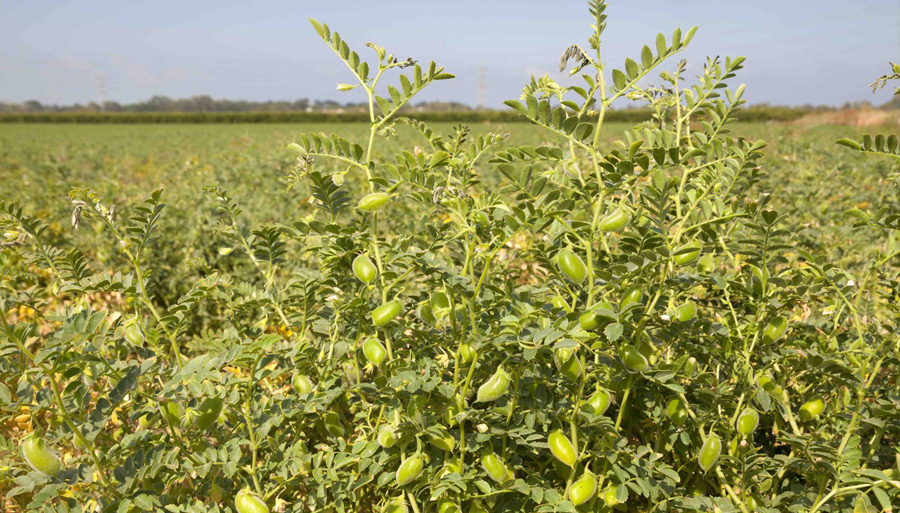July 14, 2020
The debut of the India Pulses and Grains Association’s Knowledge Series examined recent government reforms and the opportunities they open up across the agricultural value chain.


In the debut webinar of its Knowledge Series, the India Pulses and Grains Association (IPGA) took a deep dive into the recent reforms announced by the government of Prime Minister Narendra Modi. The devastation wrecked by the global COVID-19 pandemic was ever present, but over the course of several presentations, a feeling of optimism bubbled up to the surface. By the time the virtual event concluded, attendees were left with a sense that India’s agricultural sector was about to enter a Golden Age.
The webinar, hosted by the IPGA on July 10th, examined the recently announced government measures aimed at liberalizing and thus boosting India’s agricultural sector, namely:
To discuss these reforms and delve into their potential ramifications, the IPGA assembled an impressive panel that featured:
The full video recording of the webinar is available on the IPGA’s YouTube channel. A written summary of the more salient points follows.
IPGA founder and director Pravin Dongre opened the webinar by welcoming attendees and acknowledging the elephant in the room.
“We are in a time of unprecedented disruption due to the pandemic, which has pushed the world to a global recession,” he said.
In the face of these challenging times, he praised the government of India for its swift response to the resulting humanitarian crisis and the country’s agricultural supply chain for stepping up to provide free food rations to nation’s most vulnerable residents. Dongre especially singled out NAFED for its monumental efforts to distribute such massive quantities of food to so many people over such a wide area.
The government’s reforms will undoubtedly give the agricultural sector a boost, Dongre stated.
“Doubling grower incomes seems a possibility now,” he said, adding that the entire supply chain would benefit from new investment opportunities.
He then introduced the moderator, G. Chandrashekhar.
The ag sector is the key to India’s economy, G. Chandrashekhar began. It accounts for $400 billion of the country’s $2.7 trillion GDP and employs about 50% of the nation’s workforce.
“For India to survive, agriculture must survive,” he said, in reference to the COVID-19 pandemic. “In the midst of this crisis, agriculture is a beacon of hope as we consume, produce and process more.”
During the campaign, the Modi administration promised to double farmer incomes by 2022. With these measures, it is moving decidedly in that direction by giving stakeholders a greater degree of freedom and encouraging investment in the agricultural sector. A stimulus package of $14 billion over four years is to boost investment in post-harvest infrastructure, while amendments to the Essential Commodities Act are to reduce government involvement in favor of the free market. Barrier free trade, with the opening of private markets and the implementation of e-trading, aim to realize the concept of One Nation, One Market. And contract farming is to provide growers with a reasonable return on investment.
Questions remain to be answered and details to be worked out, but these measures open the door to major market opportunities for trade and investment (both foreign and domestic), and unleash the agriculture sector to produce, process and trade greater volumes.
“When implemented fully, these reforms will be a game-changer for the farm sector,” Chandrashekhar concluded.
Nidhi Khare, additional secretary for the Department of Consumer of Affairs at the Ministry of Consumer Affairs, Food and Public Distribution, discussed the amendments to the Essential Commodities Act.
The Act was put into force in 1955 and gave the government the power to regulate the production, distribution, movement, transportation, pricing, storage, trade and commerce of essential commodities in order to protect the interests of the general public.
These amendments mark the first revisions to the Act in its 65-year history. The revisions remove agri-foods from government regulation, except under extraordinary circumstances, such as war, famine, natural calamities and drastic increases in pricing. They are designed to attract investment while also preventing price manipulation. The amendments grant producers greater freedom to sell their crops to different actors and set price triggers for government-imposed stock limits in order to provide market predictability.
“These reforms give markets space to grow to benefit both growers and consumers,” said Khare.
READ THE FULL ARTICLE
IPGA / G Chandrashekhar / Nidhi Khare / Ashok Dalwai / Sunil Kumar Singh / Rajnikant Rai / Parag Gadre / Yogesh Thorat / Rajesh Srivastava
Disclaimer: The opinions or views expressed in this publication are those of the authors or quoted persons. They do not purport to reflect the opinions or views of the Global Pulse Confederation or its members.